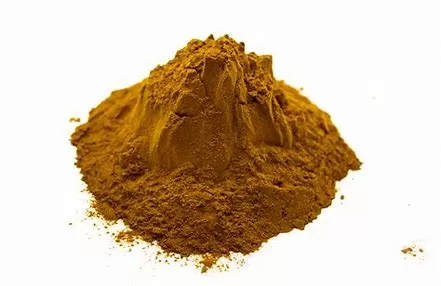- 0086-571-85302990
- sales@greenskybio.com
Efficacy of Mushroom Supplements: Do They Really Work?
2025-04-29
In recent years, the use of mushroom supplements has surged in popularity as consumers seek natural solutions to enhance their health and wellness. Marketed for a host of potential benefits—from boosting immunity to improving cognitive function—mushroom supplements appeal to a growing audience interested in alternative medicine. However, the question remains: do these supplements actually work? This article examines the scientific evidence behind the health claims associated with mushroom supplements, disentangling facts from fiction to provide a comprehensive understanding of their efficacy.
Understanding Mushroom Supplements
Mushroom supplements are derived from a variety of fungi species, each offering its unique profile of bioactive compounds. Commonly used species in supplements include reishi (Ganoderma lucidum), lion's mane (Hericium erinaceus), chaga (Inonotus obliquus), cordyceps (Cordyceps sinensis), and turkey tail (Trametes versicolor), among others. These mushrooms are rich in polysaccharides, terpenoids, polyphenols, and other compounds believed to contribute to their health benefits.
Typically available in the form of capsules, powders, or tinctures, mushroom supplements are designed to deliver concentrated doses of beneficial compounds purported to support various aspects of health. The following sections explore some of the claimed benefits and the scientific evidence supporting them.
Immune System Support
One of the most well-supported claims about mushroom supplements is their potential to enhance immune function. Several mushrooms, including reishi, turkey tail, and shiitake, contain polysaccharides like beta-glucans known for modulating the immune system. Research suggests that these compounds can activate immune cells, such as macrophages and natural killer cells, thus enhancing the body's defense mechanisms against infections.
A number of studies have reported positive immune-modulating effects from mushroom supplementation. For example, clinical trials involving turkey tail supplements have shown improved immune responses in individuals undergoing cancer treatment. While the research is promising, more rigorous studies are required to fully validate the extent of these effects in a broader population.
Cognitive Function and Neuroprotection
Lion's mane mushrooms have gained attention for their potential cognitive benefits. Compounds in lion's mane, such as hericenones and erinacines, may stimulate the production of nerve growth factor (NGF), a protein essential for the survival and function of nerve cells. Animal studies have demonstrated that lion's mane may enhance cognitive function and reduce symptoms of anxiety and depression.
Limited human trials suggest potential neuroprotective effects, with lion's mane supplementation showing improvements in individuals with mild cognitive impairment. However, large-scale, well-controlled human studies are necessary to conclusively determine the efficacy of lion's mane supplements for cognitive health.
Energy and Athletic Performance
Cordyceps mushrooms are often marketed for their ability to enhance physical performance and boost energy levels. This assertion is rooted in the mushroom's potential to improve the availability of adenosine triphosphate (ATP), the primary energy currency of cells. Some studies indicate that supplementation with cordyceps may improve exercise performance and reduce fatigue, particularly in older adults.
Although findings are promising, the evidence remains inconclusive, with many studies involving small sample sizes or animal models. More robust human trials are required to establish clear guidelines on dosage and efficacy for athletes and active individuals.
Antioxidant and Anti-inflammatory Properties
Mushrooms are known to contain a wide array of antioxidants that help protect cells from oxidative stress and reduce inflammation. Chaga mushrooms, in particular, are rich in antioxidants, such as melanin and superoxide dismutase, which contribute to their purported anti-aging and anti-cancer properties.
The anti-inflammatory effects of mushrooms like reishi and lion's mane may also support joint health and reduce inflammation-related symptoms. While in vitro and animal studies provide insight into these mechanisms, more comprehensive human studies are necessary to validate these benefits and determine their real-world applicability.
Safety and Considerations
While mushrooms are generally considered safe, potential side effects and interactions should be taken into account. Some individuals may experience allergic reactions or digestive disturbances when consuming mushroom supplements. Moreover, interactions with medications can occur, particularly for mushrooms like reishi that may affect blood clotting.
As with any supplement, it is crucial to consult a healthcare provider before adding mushroom supplements to your regimen, especially if you are pregnant, nursing, or managing chronic health conditions.
Quality and Standardization
The efficacy of mushroom supplements can vary significantly based on factors such as the species used, cultivation methods, and extraction processes. Consumers should be aware of the quality and standardization of products, opting for supplements that provide transparent labeling and third-party testing for potency and purity.
Standardized extracts, which specify the concentration of active compounds, offer a more consistent and reliable supplement, offering better insights into the potential health benefits.
Conclusion
Mushroom supplements hold promise due to their diverse bioactive compounds and potential health benefits. From supporting immune function to cognitive enhancement and anti-inflammatory effects, mushrooms offer a range of applications that appeal to health-conscious consumers. However, while preliminary research is promising, more substantial human studies are needed to confirm the effectiveness of these supplements and provide clear evidence-based guidelines.
As consumers navigate the burgeoning market for mushroom supplements, it is essential to prioritize quality products, verified scientific research, and professional guidance to ensure safe and beneficial outcomes. As our understanding of mushrooms continues to grow, they may indeed play an ever-greater role in supporting health and wellness.
-
Why is Reishi so good?
2025-04-29
-
Does reishi balance hormones?
2025-04-29














